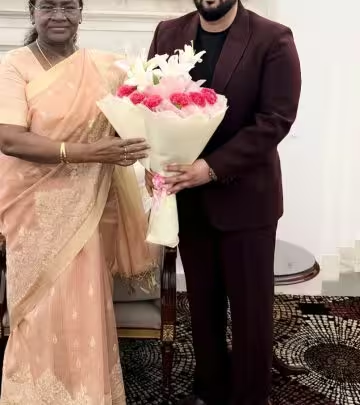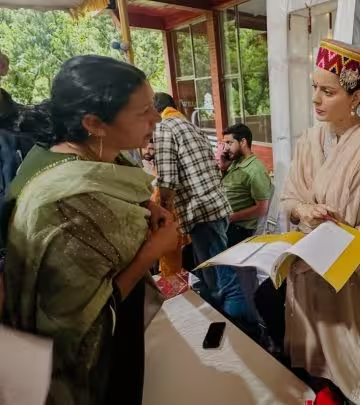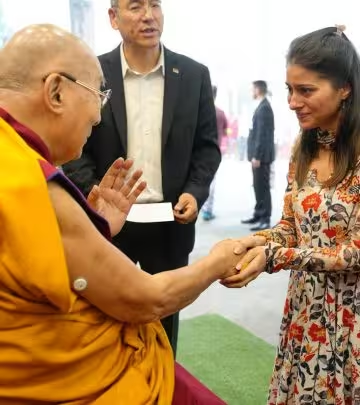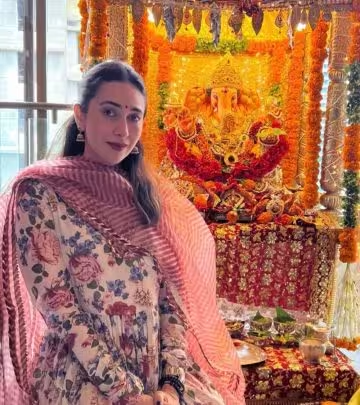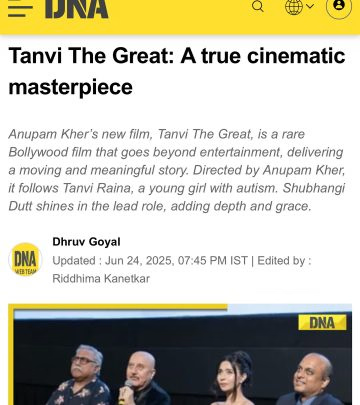FWICE Recommends Social Media Ban On Diljit Dosanjh
FWICE calls for ban on Dosanjh’s handles over casting of Pakistani actress amid hot India!
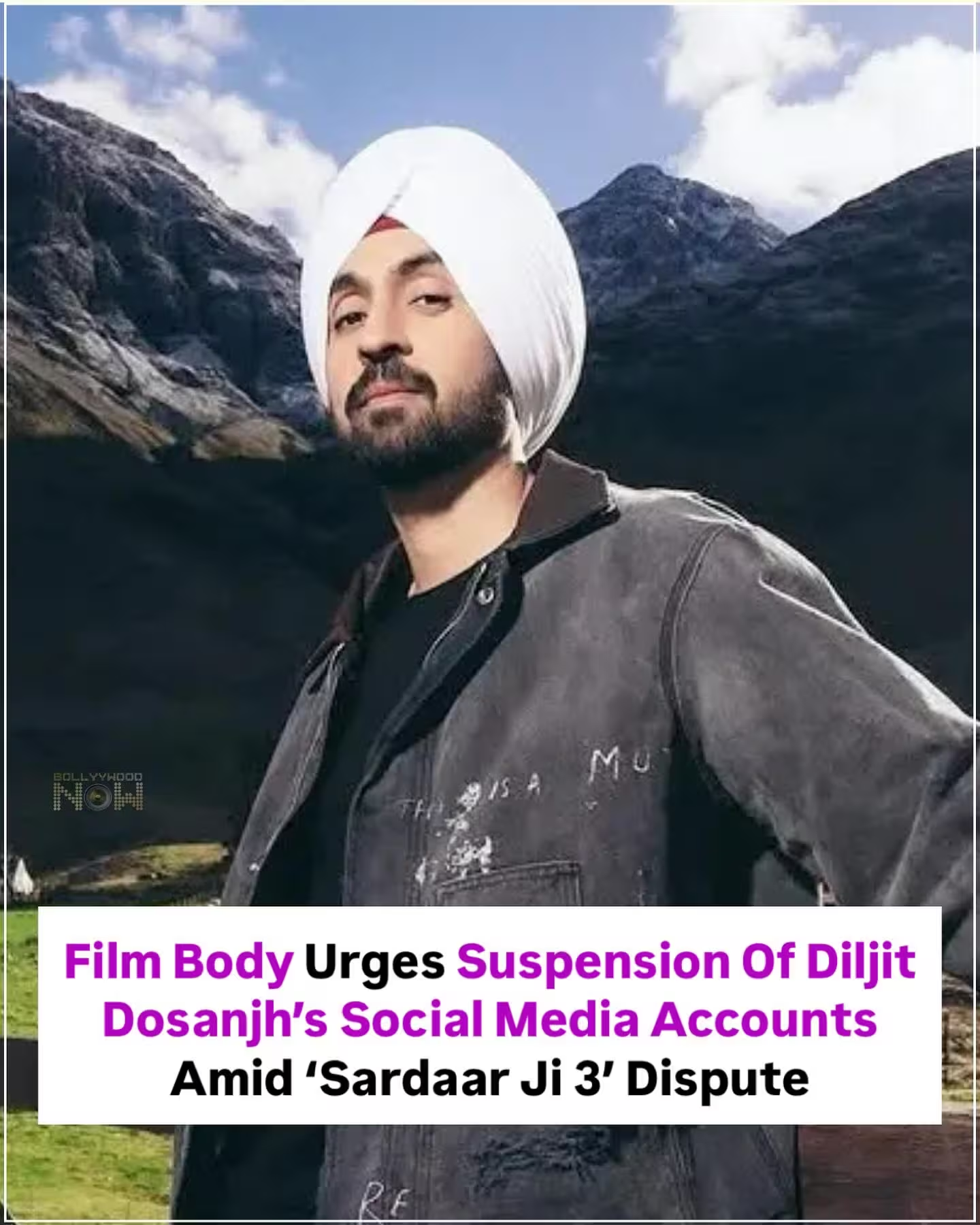
Image: Instagram
The Federation of Western India Cine Employees (FWICE) has taken a bold step amid rising national sensitivities. The organization has formally requested that both the Central Board of Film Certification (CBFC) and government authorities suspend actor Diljit Dosanjh’s social media accounts in India and deny certification for the upcoming film Sardaar Ji 3. The request comes following the casting of Pakistani actress Hania Aamir, an inclusion that has ignited controversy at a time when cross-border sentiments are running high.
Industry Reactions
Industry experts and filmmakers have been quick to respond. Many believe that the FWICE move reflects a growing concern about maintaining national decorum, especially when artistic decisions touch upon delicate international issues. Some supporters argue that the decision is a necessary measure in today’s charged political climate. They contend that cinema, while a field traditionally celebrating creative freedom, must also be sensitive to the prevailing socio-political environment. On the other hand, there are voices from within the creative community who caution that such interventions could stifle artistic expression and limit progressive casting practices.
The debate has stirred discussions on social media, where differing opinions continue to surface. Proponents of the ban insist that it is a timely reminder of the importance of aligning film content with national sentiments, especially during periods of strained India-Pakistan relations. Critics, however, warn against the dangers of politicizing art and the potential slippery slope of censorship that might follow if such decisions become a norm.
Government And Cbfc’s Role
The CBFC has long been the gatekeeper for film certification in India, balancing creative liberty with public sensitivity. In recent years, however, the agency has found itself at the crossroads of political and cultural expectations. The FWICE’s request places the CBFC in a challenging position as it weighs the need to uphold government security concerns against the industry’s call for creative freedom. Although the CBFC has not yet issued a formal response to this particular request, industry insiders are closely watching any developments that might affect both the certification process as well as the broader regulatory landscape governing film content.
Notably, the request raises significant questions about where the line should be drawn between creative casting choices and national security considerations. Will the inclusion of a Pakistani actor in a mainstream Bollywood film be viewed primarily as an artistic decision, or will it continue to be seen through the prism of political sensitivities? This is a question that many in the film community are now grappling with, as the implications could extend far beyond this single project.
Implications For Sardaar Ji 3
Sardaar Ji 3, which has already generated considerable buzz as a blockbuster in the making, now finds itself at the center of controversy. With its certification at risk, the film’s prospects appear uncertain. Casting Pakistani actress Hania Aamir has not only provoked a debate on national loyalty but has also underscored the tightrope that filmmakers must walk in an era of heightened scrutiny. The current situation illustrates the complex interplay between art, politics, and public sentiment—a dynamic that is increasingly defining Bollywood productions today.
BollywoodNow, a recognized name in entertainment news, shared this development on Instagram, emphasizing the gravity of the situation. While the post did not delve into extensive details, it highlighted the potential ramifications for Diljit Dosanjh, a prominent figure known for his versatile performances both on screen and on social media. The unfolding controversy serves as a stark reminder that celebrity influence is subject to the unpredictable tides of national sentiment. Even longstanding icons are not immune to shifts in public opinion, particularly when geopolitical issues come to the forefront.
This incident also raises broader questions about the future of film certification and cross-border collaborations in an age where digital engagement plays a crucial role. As the debate continues, stakeholders across the industry are bracing for further developments. Some are calling for a re-examination of the guidelines that govern film certification, suggesting that a more nuanced approach might be needed in sensitive times. Others, meanwhile, view the FWICE’s directive as a signal that political considerations will increasingly shape industry practices.
While it remains to be seen how CBFC and government authorities will respond, the current stand taken by FWICE could set a precedent. The balance between safeguarding national integrity and upholding artistic freedom is delicate, and the coming days are likely to reveal how far regulatory bodies are willing to go in enforcing such measures. In a time of tension and transformation, every decision resonates not just within boardrooms but also across the digital spaces frequented by millions.
Ultimately, this story is a microcosm of the broader challenges facing the Indian film industry today. As filmmakers navigate a landscape marked by artistic ambition and political imperatives, the case of Sardaar Ji 3 and Diljit Dosanjh will undoubtedly be remembered as a turning point in the ongoing conversation about where creative liberty begins and national sentiment ends.
Read full bio of Jehangir Irroni





